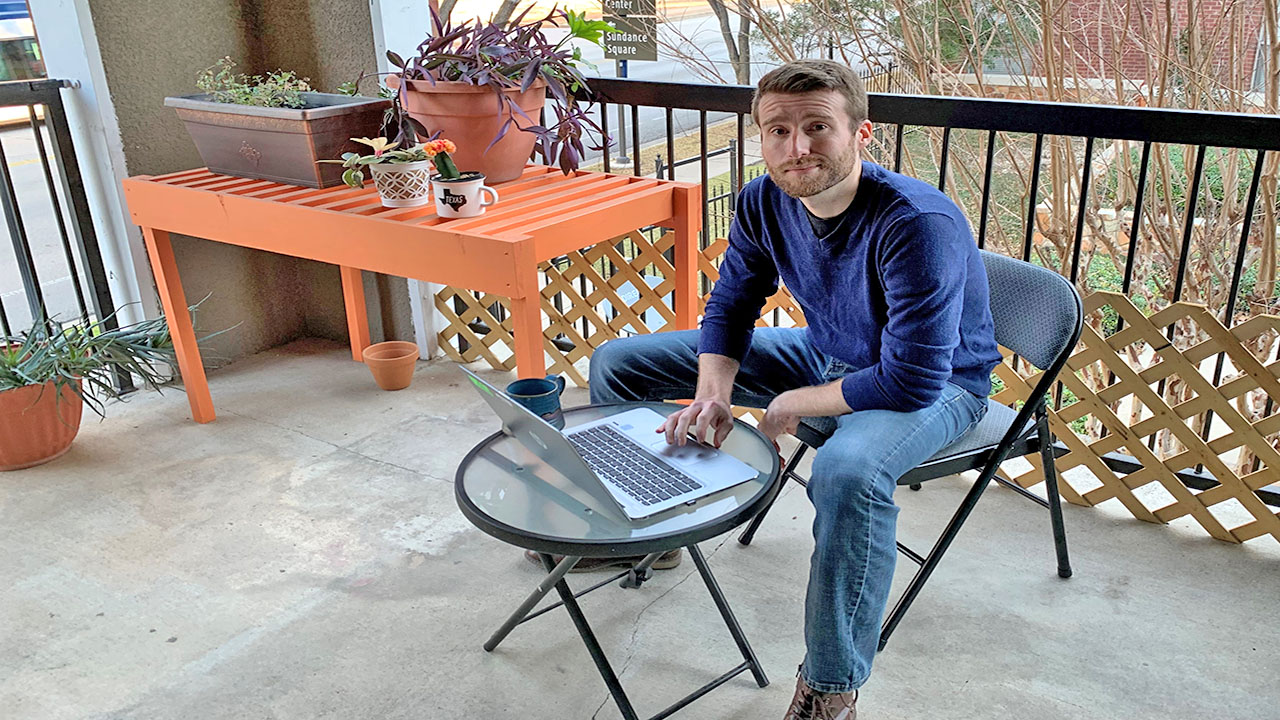Interdisciplinary graduate program supports individual students' career goals
Published: Jan 29, 2021 8:00 AM
By Karen Hunley
If you ever read one of those “choose your own adventure” books as a kid, you can compare that theme to the Master of Engineering – Interdisciplinary degree program at Auburn, said Bradley Johnson, a current online graduate student in the Samuel Ginn College of Engineering.
“As lame as that sounds, it really represents the key strength of this program,” he added. “It is a chance to build a master’s degree that fits your goals.”
Johnson is in his second year of the Master of Engineering program while also working full time as a systems and reliability engineer at Lockheed Martin Aeronautics in Fort Worth, Texas. The main appeal of the interdisciplinary program, he said, is that it allows him to continue focusing on systems-related engineering topics while growing his expertise in aerospace engineering. Johnson holds a bachelor’s degree in mechanical engineering from the University of North Florida.
Launched in 2018, the interdisciplinary program requires 30 hours of coursework that is tailored to fit students’ individual needs and interests. Students are required to take 21 hours of engineering courses, which can be in multiple engineering disciplines, and they can take the remaining nine elective hours outside engineering.
During the application process, prospective Master of Engineering students submit a statement of interest that should include their current job responsibilities and future objectives, which is intended to help steer their plan of study.
Maria Auad, associate dean of graduate studies, works closely with students to create this cohesive plan of study that should ultimately help advance their careers. There are currently 18 students enrolled in the Master of Engineering program.
“Today’s engineers are facing a global workforce, and you must have expertise in different areas,” said Auad. “This degree complements a student’s engineering background and gives them additional knowledge in other fields.”
Companies can benefit from this program, too, Auad said, because it allows their engineers to take on a new role or complete a special task that they may not have been qualified for before completing their degree.
Auad also said students have shown a broad range of interests outside engineering, with the most common elective courses being those in business and science and mathematics. Johnson is using the opportunity to explore political science.
“I am very interested in engineer’s interactions with the legal system and engineering as it relates to non-profits and policy,” he said. “The fact that I have been able to take classes that address these very different topics is fulfilling.”
Ryan Demny, a space exploration design engineer at Boeing in Houston, is in his second semester of the Master of Engineering program.
“This program allowed me to pursue my own professional interests that ride the line between the mechanical and aerospace engineering fields without a cumbersome, pre-set degree plan from either,” Demny said. “I didn’t want to be constricted to exclusively studying only in one particular discipline when so much of my work deals with content from both areas.”
Demny hasn’t begun taking his electives yet, but he looks forward to taking business classes like project management and strategic analysis, which he said will help him better integrate with his company’s management units and become a more “well-rounded engineer.”
The fully online format is another highlight of the program, Johnson said, especially since there are so few comparable degree programs.
“Being a full-time engineer, I would very much be limited to the programs in my areas were it not for this (online) option,” he added. “This format is key to allowing 40 hour-a-week or more engineers to continue their education and reach their goals.”
Johnson also said he has no problem communicating with faculty as a remote student. In fact, most professors have been using Zoom in some capacity in all their classes since the COVID-19 pandemic began, which he said has made engaging with faculty even easier.
The Master of Engineering – Interdisciplinary degree program requires a bachelor’s degree in engineering, although exceptions may be approved if the student has the background needed to succeed in graduate engineering courses.
For more information visit the Master of Engineering-Interdisciplinary program web page or contact eol@auburn.edu.
Media Contact: , kam0003@auburn.edu, 334.844.2224
Bradley Johnson, Master of Engineering student

